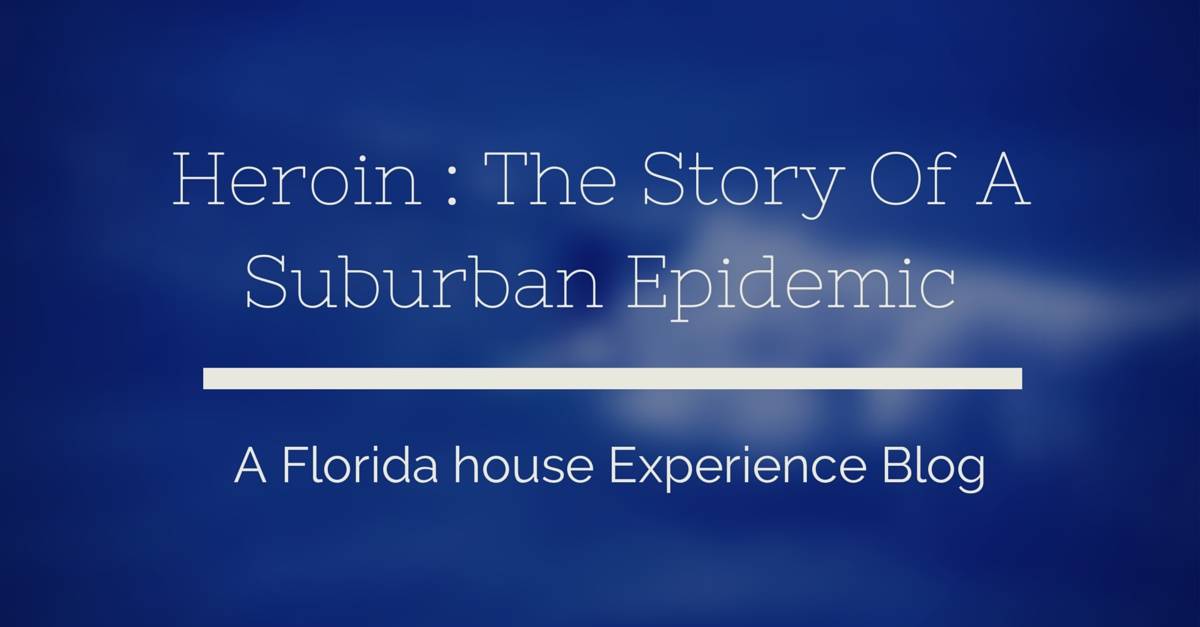
A good middle school student with above average grades, poised, and charming, she was never expected to go down the path she did. Yet, during her freshman year in high school she decided to experiment with drugs and alcohol. And that is how it starts, with simple experimentation. No one sees them selves going down the “heroin route.” Yet more and more kids from the suburbs with great families and everything they need to succeed readily provided, are ending up addicted to heroin.
Eventually this young girl will move onto prescription pills, spending hundreds of dollars a day to feed her habit. Then one of her friends will suggest or ask her if she has tried heroin. And by that point, the prescription pill habit is so entrenched within her that she can’t possibly say no to the cheap, available and potent heroin. Buying the heroin, she then began injecting herself with a needle. Becoming the archetypal and classic vision we all have of a “junkie.”
A Story Repeated
This story is happening all over America and the rise is being driven by a large supply of cheap heroin in purer concentrations. Much of the increase among suburban teens, as well as a growing number of adults, has coincided with a sharp rise in the use of prescription painkillers, which medical experts and most of us know are nearly identical to heroin. These narcotic painkillers, opioids are prescribed for things such as sports injuries, dental procedures, or chronic back pain. Yet in a harrowing amount of cases, these prescribed pills are leading to overdependence and often to an addiction that then leads to heroin use.
The most recent rise in heroin abuse was made more visible by the overdose death of the famous and renowned actor Philip Seymour Hoffman as well as a couple others. But use of the drug has been growing steadily across many levels of society for at least five years.
Unlike the heroin surge in the ‘70s, the current use of opiates is far more concentrated amount suburban and rural whites than among Africa-American and Latino communities. Not only that but the demographic is mainly within the ages of 18 and 25. And even with those kinds of confines on heroin use, heroin knows no bounds. It is crossing demographics, socioeconomic statuses, races, and geographic locations.
And it all starts with prescription pills. Consider these facts:
- More than 12 million Americans reported using prescription painkillers in 2010 without a prescription or just for the high that they cause.
- Nearly 3 out of 4 drug overdose deaths are now caused by prescription painkillers. In 2008, some 14,800 deaths were attributed to the pills – “more than cocaine and heroin combined.”
- More than 475,000 emergency room visits were directly linked to prescription painkiller misuse or abuse in 2009, roughly double the number of five years earlier.
The global production of oxycodone, marketed as OxyContin in the United States, increased from two tons in 1990 to 135 tons in 2009. More than two-thirds of that supply was manufactured in the US, which, according to the United Nations Office on Drugs and Crime, increases the risk of its subsequent over prescription and diversion into illicit channels.
And once someone becomes addicted to painkillers it isn’t too far of a journey into heroin use. Painkillers are merely a derivative of morphine and so is heroin. Morphine was developed in the late 1800s as a painkiller. Joseph Gfroerer of SAMHSA co-wrote a recent study that found that, of those who had tried heroin, about 80 percent had previously used painkillers without a prescription.
So the way that heroin moves into the suburban areas? Through little pills that are mistakenly thought of as safe or no big deal. It is time to start paying attention and spreading awareness.






